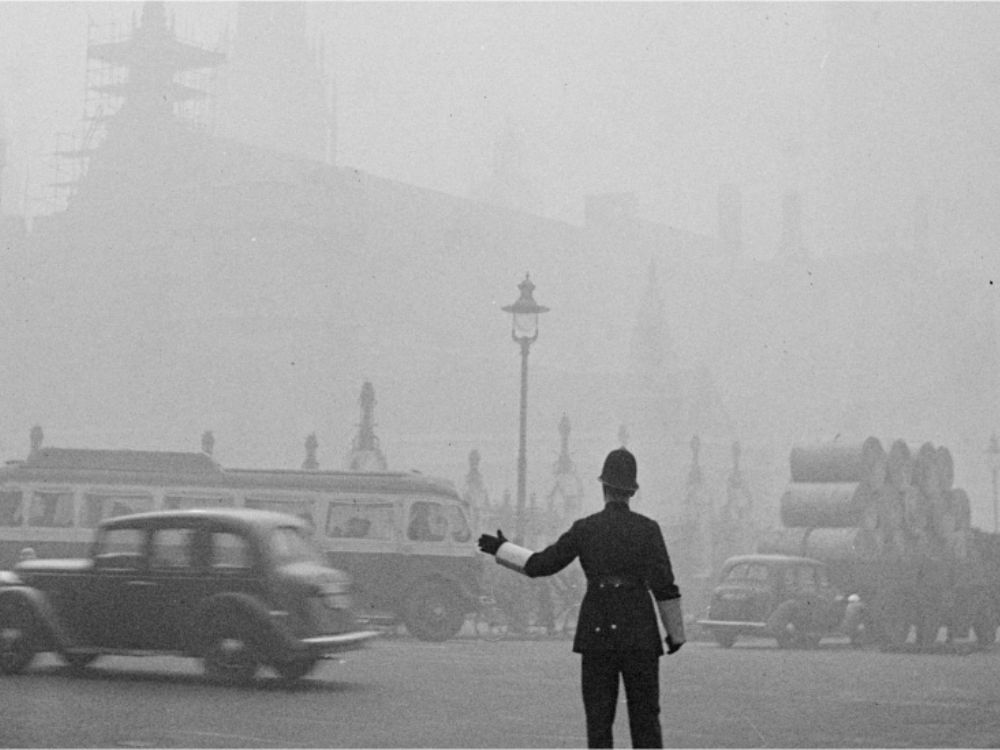London’s Air Pollution Story: from pea-soupers to ULEZ – with Professor Frank Kelly CBE

public in-person lecture
From pea soup smog to an ultra-low emission city, London has a long history of air pollution challenges. In this presentation, Professor Kelly guided us through the various steps taken and initiatives launched to address this important environment and health issue.
Professor Frank Kelly CBE - Battcock Chair of Community Health and Policy, Director, Environmental Research Group, Imperial College London; Director, NIHR Health Protection Research Unit in Environmental Exposures and Health Deputy Director, MRC Centre for Environment and Health.
Many congratulations to Professor Frank Kelly who has been awarded a CBE in the New Year Honours list for services to air pollution research and to human health.
Of his recognition in the Honours list Professor Kelly said: ‘I feel incredibly privileged to have received this recognition – especially since it acknowledges work that has been and continues to be so very rewarding. I am immensely thankful to those who have supported and inspired me along the way. This honour is a reflection of collective effort and dedication of many talented and wonderful individuals around the world.’
The devastating health effects brought about by air pollution became all too evident in December 1952, when a toxic combination of London’s cold, motionless smoggy air brought about the worst pollution disaster in history. This great killer smog episode claimed an estimated 4,000-12,000 premature deaths and increased morbidity from cardiorespiratory causes. It was also the impetus for the 1956 Clean Air Act, the major focus of which curtailed domestic coal burning.
However, as one air pollutant was being solved another was developing in London and indeed in many cities around the world – traffic. Working with successive Mayors in London policies were developed to move towards the point where air pollution no longer poses a significant risk to human health. We learnt more about these policies and their successes.
The substantial research activity, over which Professor Kelly presides, spans all aspects of air pollution research from toxicology through to science policy. The experimental research examines the toxicity of airborne particulate matter, diesel and biodiesel exhaust emissions, wood smoke and identifies of biomarkers of exposure. A new area of investigation is ambient microplastics, where work is focusing on their identification, detection and potential health effects. He has led studies on the urban airshed within London, including the impact of the introduction of London’s Congestion Charging Zone and the Ultra Low Emission Zone. During his leadership at King’s, the London Air Quality Network developed into a first-class dissemination and education resource for London residents.
He provides policy support to the World Health Organisation on air pollution issues and is a member of the Health Effects Institute (HEI) Review Committee. He is past Chairman of COMEAP, the UK’s Department of Health’s Expert Committee on the Medical Effects of Air Pollutants, past President of the European Society for Free Radical Research and past Chairman of the British Association for Lung Research.
If you are a Member of Friends, one of the benefits of an annual Membership is a reduction in the price of lecture tickets, both for you and your guests. If you are not a Member and would like to take advantage of this, as well as enjoying the wide range of other benefits such as exclusive visits and FREE live streamed events, visit the 'Join Friends' page here.

